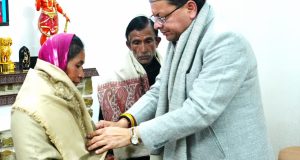DAINIK NATION BUREAU
Are you having problems with your Wi-Fi signal? Do you have problems connecting to your network when you’re in certain parts of your house?
If these problems sound like something that you have to deal with on a daily basis, don’t worry, you’re not alone. Wi-Fi problems are one of the biggest annoyances that affect the modern internet user.
That is why it is very good news that researchers at Dartmouth College have developed a cheap and effective way to both boost a Wi-Fi network’s signal and secure it all at the same time.
The system is built on the results of a simple experiment that saw a soda can being cut open and used to reflect the Wi-Fi signal from the router. The reflective surface of the can reflects and boosts the Wi-Fi signal. The researchers have used this principle to create an algorithm that can design custom schematics for a 3D printed reflector. Xia Zhou, an assistant professor of computer science at Dartmouth, said:
“With a simple investment of about $35 and specifying coverage requirements, a wireless reflector can be custom-built to outperform antennae that cost thousands of dollars.”
All users have to do is input the details of where the Wi-Fi network will be and where the user wants the signal to be strongest and weakest. The algorithm will then design a specific shape that, once 3D printed and covered in reflective foil, will boost the signal in the desired areas and block it from the areas it is not supposed to be. This way it can both boost the signal and help protect the network from outside interference if, for example, the router is placed next to a window.
https://en.softonic.com/articles/this-cheap-reflector-will-help-boost-and-secure-your-wi-fi-signal/?utm_medium=push&utm_source=all_en&utm_campaign=0a6846f0-fa15-43ab-b0b1-cdbd05b044ff
 Dainik Nation News Portal
Dainik Nation News Portal




